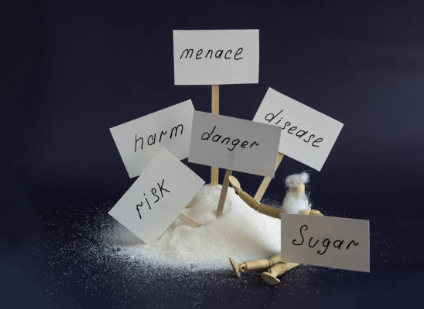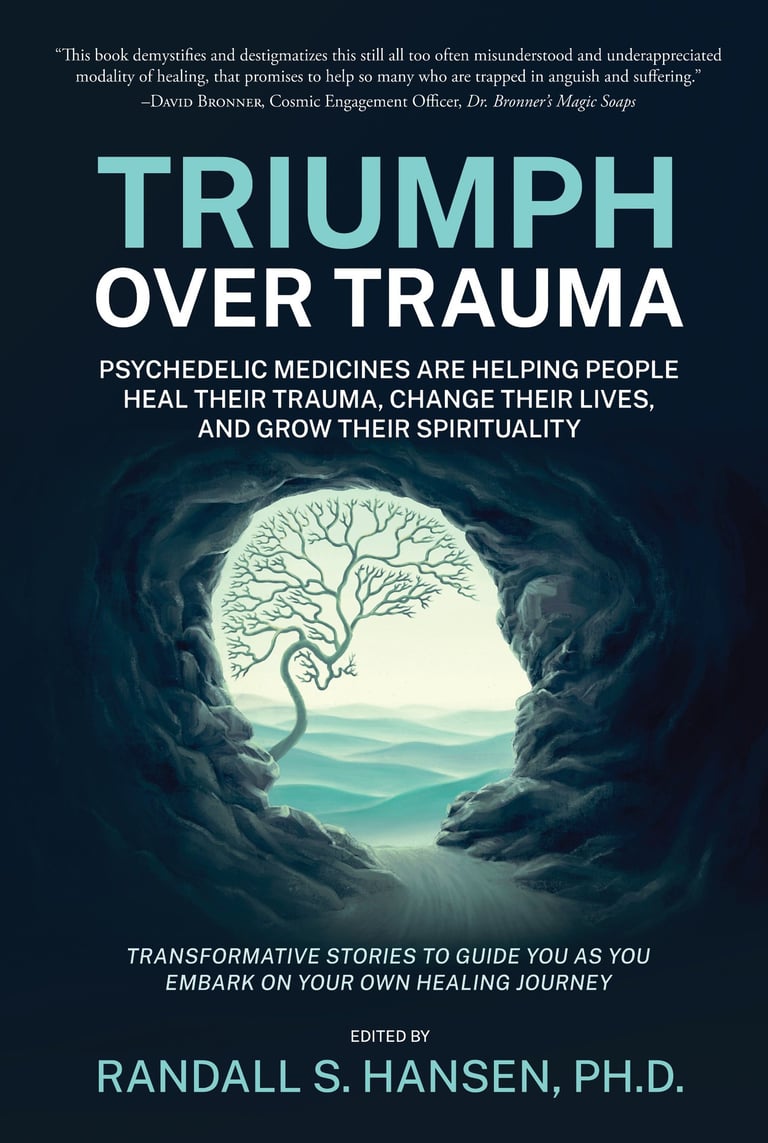Sugar is Safe? No. It's a Health Hazard
For decades, the sugar industry has done an excellent job in portraying refined sugar as a safe ingredient in many of our favorite baked goods, candies, chocolates, desserts, and sodas… all the while letting saturated fat take the “blame” for serious health issues.
However, with more independent research conducted outside of the sugar industry, researchers and health professionals are documenting a very different picture of refined sugar. Refined sugar – in all its many forms – is now seen as a toxin to the body. More importantly, it has addictive properties that make it hard for many people to quit.
Furthermore, sugar is not only in our favorite sweet treats, but has spread pervasively into most ultra-processed and convenience foods. Besides the typical sweet foods, sugar can now be found in bread, crackers, frozen pizzas, frozen meals, sauces, condiments, and dressings – the vast majority of all products found in grocery stores, fast food, and takeout.
Part of the issue with sugar is that the vast amounts people are consuming exponentially increases its toxicity in the body. One example: The leading cause of liver disease used to be cirrhosis from alcohol abuse; today, it is nonalcoholic fatty liver disease – a direct result of too much sugar consumption (which leads to insulin resistance and chronic inflammation).
One of the most comprehensive analyses of the impact from sugar consumption, which itself was a review of 73 meta-analyses — which included 8,601 studies and 83 health outcomes — determined that high consumption of added refined sugar was associated with significantly higher risks of 45 negative health outcomes, from gout to cancer to premature/early death.
The research, titled “Dietary Sugar Consumption and Health: Umbrella Review,” was published in The BMJ, an international research journal in 2023 (https://doi.org/10.1136/bmj-2022-071609), with an objective to “evaluate the quality of evidence, potential biases, and validity of all available studies on dietary sugar consumption and health outcomes.”
Researchers concluded that sugar consumption – in all refined forms – is a danger to people’s health, especially in the levels being consumed today. Please note that naturally occurring sugars in whole foods should not be a major health concern, as long as the whole fruit is eaten (with the fiber) and you are not overly consuming fruits high in sugar content.
The Negative Health Outcomes From Sugar Consumption
What follows is the main list of negative consequences of excessive (the new normal) sugar consumption, but the thing to remember is that all these health issues result in reduced quality of life and premature death.
Specifically, here are the major health consequences identified by the researchers:
Elevated blood sugar
Weight gain
Obesity
Gut microflora disruption
Leaky Gut
Increase in visceral fat (surrounds some of the vital organs)
Increase in ectopic fat (accumulates in the liver, heart, pancreas, and muscles)
Reduced bone mineral density
Insulin resistance
Gout
High blood pressure/hypertension
Non-alcoholic fatty liver disease (NAFLD)
Asthma
Tooth decay
Attention-deficit disorder/attention-deficit/hyperactivity disorder
Addictive behavior
Higher low-density lipoprotein (LDL) cholesterol
Higher levels of uric acid/hyperuricemia
Oxidative stress
Chronic inflammation
Autoimmune diseases
Metabolic Syndrome
Depression
Anxiety
Diabetes (Type 2)
Heart attack, heart disease
Myocardial infarction
Stroke
Overall cancer risk, overall cancer mortality
Liver cancer
Bladder cancer
Prostate cancer
Pancreatic cancer
Breast cancer
Premature/early death
Classifications of Sugar
Many people are aware of things like table sugar and high-fructose corn syrup, but there are many types of sugar that are often in people’s diets, including:
Dextrose/Glucose (from the starch of wheat, rice, and corn, but mainly from corn)
Fructose (extracted from fruits and some vegetables)
Syrups (such as high-fructose corn syrup)
Honey
Sugars from concentrated fruit and vegetable juices
The sugar industry also has a long list of names for sugar, including some of the most commonly used:
Agave nectar/syrup
Beet sugar
Brown rice syrup
Brown sugar
Cane sugar/cane syrup
Coconut sugar
Confectioners’ sugar
Corn syrup solids
Dextrin
Dextrose
Evaporated cane juice
Fructose
Fruit juice/fruit juice concentrate
Glucose
Glucose solids
Golden sugar/golden syrup
High fructose corn syrup
Honey
Maltodextrin
Maltose
Maple sugar
Maple syrup
Molasses
Organic (cane) sugar
Powdered sugar
Raw sugar
Sucrose
Sugar beet
Turbinado sugar
How to Reduce Your Sugar Consumption
While sugar lurks in most of the processed and prepared foods in the grocery aisle, the biggest culprits are the many sugar-sweetened beverages, breakfast cereals, breads and pastries, and candies and desserts.
STOP Eating These Foods:
Sodas
Juices
Energy drinks
Sports drinks
Sweet teas
Cereals (especially children’s cereals)
Energy bars
Protein bars
Granola bars
Plant-based “milks”
Doughnuts
Ice cream
Candy
Chocolates
Cakes, cookies, pies, and other desserts
Sauces, dressing, and condiments (salad dressings, ketchup, barbecue sauce, spaghetti sauce, sweet chili sauce, etc.)
Low-fat, nonfat, and no-fat products (which usually contain added sugar to compensate for the removal of the fat)
Commercial breads
Canned fruits (usually packed in a sugary syrup)
Final Thoughts About Sugar
Many people mistakenly think of saturated fat as the food to avoid to maintain a healthy heart, but the research has been definitive in the last decade that when it comes to heart health and overall health, refined sugar is much worse than saturated fats because higher sugar consumption promotes oxidative stress and inflammation in the body – the precursors to the vast majority of chronic illnesses killing people in the U.S.
Americans eat anywhere from 70–120 grams of added sugar daily, which is equivalent to consuming 18–30 teaspoons of table sugar each day; multiply that by 365 days, and the average person is consuming 90-120 POUNDS of added sugar per year. Much of that sugar is stored as fat in the body (including in the organs).
The researchers concluded: “High dietary sugar consumption is generally more harmful than beneficial for health, especially in cardiometabolic disease. Reducing the consumption of free sugars or added sugars to below 25 g/day (approximately 6 teaspoons/day) and limiting the consumption of sugar-sweetened beverages to less than one serving/week (approximately 200-355 mL/week) are recommended to reduce the adverse effect of sugars on health.”
My recommendation is to reduce added refined sugars to near zero so that you can still occasionally enjoy grandma’s pie or home-baked birthday cake.
For more thoughts on our sugar crisis, see my other article: The Deadly Truth About Our Sugar Addiction.
Dr. Randall Hansen is an advocate, educator, mentor, ethicist, and thought-leader... helping the world heal from past trauma. He is founder and CEO of EmpoweringSites.com, a network of empowering and transformative Websites, including EmpoweringAdvice.com.
He is the author of the groundbreaking Triumph Over Trauma: Psychedelic Medicines are Helping People Heal Their Trauma, Change Their Lives, and Grow Their Spirituality and the well-received HEAL! Wholeistic Practices to Help Clear Your Trauma, Heal Yourself, and Live Your Best Life.
His latest book is a true game-changer: The HEALing Revolution Diet: A Science-based Approach to Heal Your Gut, Reverse Chronic Illnesses, Lose Weight, Clear Your Mind, and Increase Longevity.
Dr. Hansen's focus and advocacy center around true healing ... healing that results in being able to live an authentic life filled with peace, joy, love. Learn more by visiting his personal Website, RandallSHansen.com. You can also check out Dr. Randall Hansen on LinkedIn.







